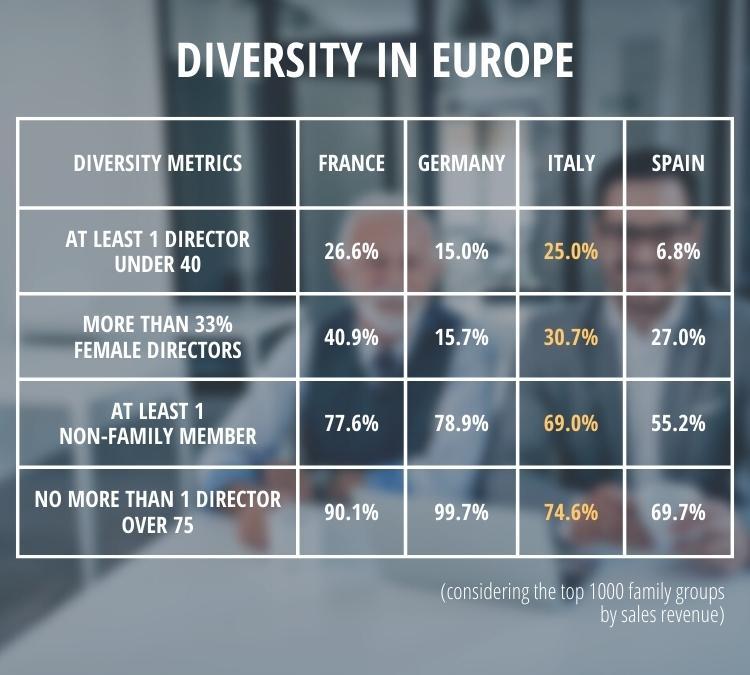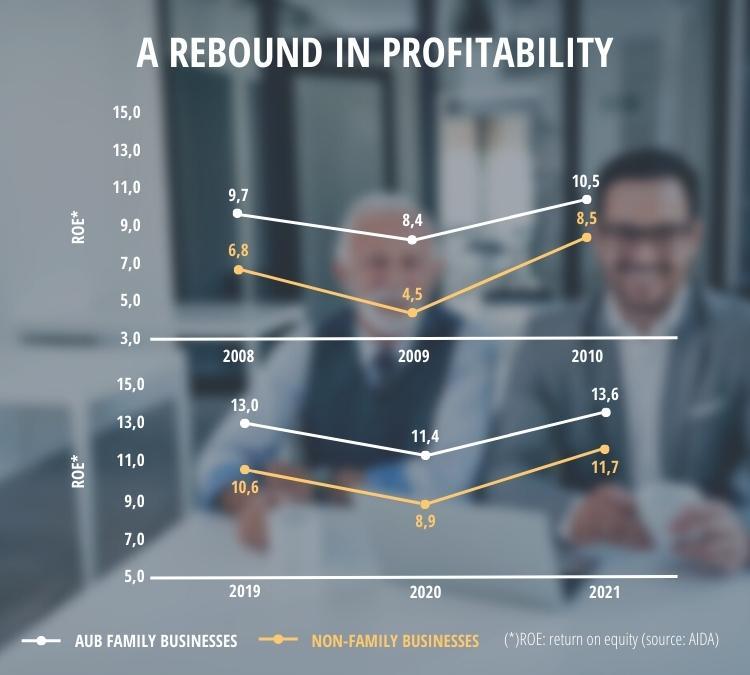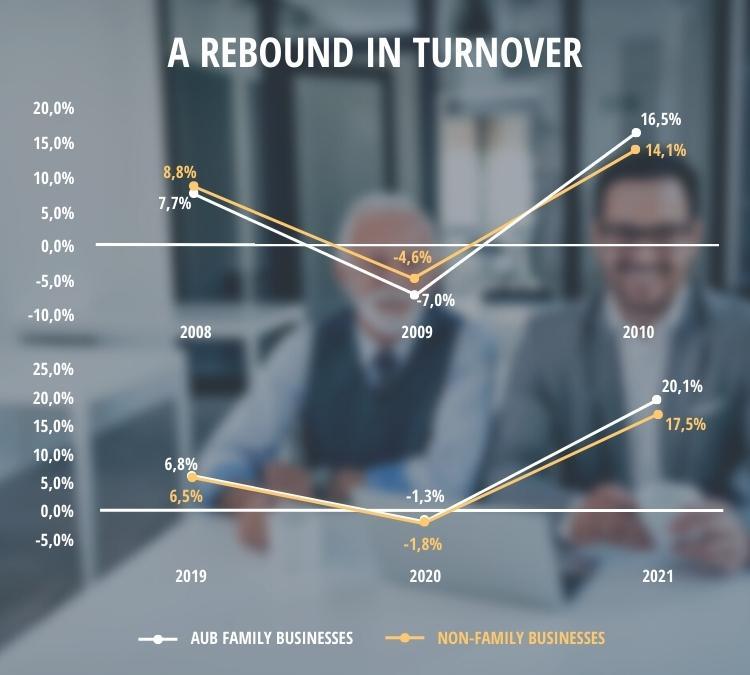
Italian Family Businesses with Higher Diversity Achieve Better Results
26.4 percent of Italian family businesses above 20 million in turnover and not governed by a Sole Director have at least one board member under 40, with small variations by sector and region. In 2010 they were 46.6%, but the progressive aging of the Italian population must be taken into account. In 37.6% of companies there are more than 33% women directors (34.4% in 2010) while in 60.1% of companies there is at least one non-family member (they were 54.3% in 2010). In 91.9% of the companies there are fewer than 2 directors over 75. The 344 family firms fulfilling all 4 diversity parameters – out of the total 8,589 family groups analyzed – grew, on average, at a rate of 9.8%, about 1.3% more than the others, and had significantly higher than average profitability.
These are some of the findings of the 14th report of the AUB Observatory, which will be presented this afternoon, January 30, 2023. This edition, edited by Guido Corbetta and Fabio Quarato, is important because it gives an account of data from the first year of recovery after the pandemic crisis. In fact, it is not a sample survey but a comprehensive study of all Italian family businesses with a turnover of at least 20 million, or 11,635 firms.
The AUB report also contains an in-depth study on comparison with other countries. In fact, for the first time, the top 1,000 family groups in Italy, Germany, France and Spain were analyzed. This very broad base shows that while a quarter of Italian companies have more than one board member over the age of 75 (one in 10 in France and almost zero in Germany), more than 30% of them have at least one-third female board members, worse than France (41%), but much better than Germany (15.7%). According to Guido Corbetta, "If we look at the size of Italian family businesses, we can say that the Italian family business system is now very similar to the French one: in both countries about 80% of the top 1000 are under 500 million in turnover. Germany is still quite far ahead because only half are under this threshold, while in Spain they are on average even smaller than in Italy."

Italian family businesses are enjoying good health and have made a remarkable rebound since the pandemic, growing sharply in turnover, profitability and strength. Turnover of these companies, in particular, grew by more than 20% in 2021 compared to the previous year, while ROE (Return On Equity) more than recovered 2019 levels, reaching 10.5%. The turnover of non-family businesses grew by 17.5% in the same year, and ROE stood at 8.5%. It should be noted that this recovery also made for an increase in employment, which grew by 3.8% compared to before the pandemic (by 2.3% in non-family businesses).

Another quite significant aspect is that the recovery of family businesses after the pandemic is even more robust than the one that followed the 2008-2009 crisis: in 2010, turnover grew by 16.5% compared to 20.1% in 2021, while ROE in 2010 was 10.5% (compared to 13.6% in 2021). Family businesses have also achieved an equity strength never seen in recent years, with the debt ratio (total assets/equity) falling to 4 times, about one-third less than in 2010. Fabio Quarato explains, "Italian family businesses, and in particular the manufacturing sector that is the core of 'made in Italy' now have broader shoulders and will be able to cope with a market slowdown that many expect in the coming months." At the same time, companies with a weaker capital situation have also decreased: family businesses with "critical" or "alert" parameters as defined in the report are 24%, a drop of as much as 6 points compared to 2019.

This favorable picture is confirmed by data on listed family businesses, which are updated to the first half of 2022: the turnover of these companies in these six months has grown by as much as 35 percent.
The AUB Observatory, now in its 14th edition, reviews the situation of Italian family businesses every year. The Observatory is promoted by Bocconi's AIDAF-EY Chair of Family Business Strategy in memory of Alberto Falck entrusted to Guido Corbetta, by AIDAF, UniCredit and the Angelini Foundation, with the collaboration of Borsa Italiana and the Milan Monza-Brianza Lodi Chamber of Commerce.